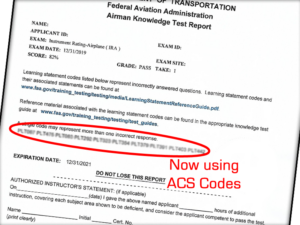 With testing standards transitioning from Practical Test Standards (PTS) to Airman Certification Standards (ACS), as of January 13th, 2020, knowledge test reports have begun listing missed questions as ACS codes. Why the change? The old PLT codes used were derived from references, which meant any given topic could have a number of different codes depending on where relevant information could be found. This made it a challenge for the FAA to align standards with guidance and test questions. It also made it difficult for applicants, instructors, and evaluators to determine a specific area of knowledge for effective retraining and retesting, because these references could include material beyond what the test-taker struggled with. The new ACS codes are specific and will make FAA testing more straightforward for all parties.
With testing standards transitioning from Practical Test Standards (PTS) to Airman Certification Standards (ACS), as of January 13th, 2020, knowledge test reports have begun listing missed questions as ACS codes. Why the change? The old PLT codes used were derived from references, which meant any given topic could have a number of different codes depending on where relevant information could be found. This made it a challenge for the FAA to align standards with guidance and test questions. It also made it difficult for applicants, instructors, and evaluators to determine a specific area of knowledge for effective retraining and retesting, because these references could include material beyond what the test-taker struggled with. The new ACS codes are specific and will make FAA testing more straightforward for all parties.
Currently these exams have been aligned with the ACS:
- Private Pilot Airplane (PAR)
- Instrument-Airplane Rating (IRA)
- Instrument-Airplane Rating Canadian Conversion (ICP)
- Instrument Rating, Foreign Pilot (IFP)
- Commercial pilot Airplane (CAX)
- Commercial Pilot Canadian Conversion (CCP)
- Airline Transport Pilot, Multi Engine (ATM)
- Airline Transport Pilot Canadian Conversion, Multi Engine (ACM)
- Airline Transport Pilot Canadian Conversion, Single Engine (ASC)
- Military Competence (MCN)
- Remote Pilot (UAG, UAR)
Each ACS code is broken into four parts and is unique to its assigned knowledge, risk management, or skill element. Each piece of the code is separated by a period. For example: PA.I.D.K4
-
- The first piece indicates the applicable ACS [e.g., Private (PA), Instrument (IR), Commercial (CA)]
- The second indicates the area of operation (e.g., Preflight Preparation, Navigation)
- The third indicates a task area pertaining to that area of operation (e.g., Pilot Qualifications, Cross-Country Flight Planning)
- The fourth indicates a specific task element within a task area. All tasks are grouped according to type:
-
- Knowledge (K) – “The applicant demonstrates understanding of: [task]”
- Risk Management (R) – “The applicant demonstrates the ability to identify, assess and mitigate risks, encompassing: [task]”
- Skills (S) – “The applicant demonstrates the ability to: [task]”
Reading from left to right, an ACS code represents a macro to micro view of an area of knowledge. Let’s decode the example: PA.I.D.K4.
- PA. Private Pilot – Airplane
- I. Preflight Preparation
- D. Cross-Country Flight Planning
- K4. Elements of a VFR Flight Plan
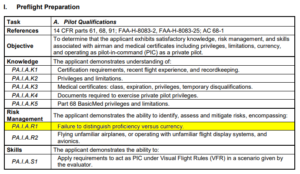
Unlike PLT codes, ACS codes do not point to a specific handbook chapter or section. Instead, ACS codes point to a specific element in the standard.As an instructor, the first thing you should do upon receiving a student’s knowledge test report is determine the specific task associated with the code in the ACS. For example, if one of the codes on your student’s knowledge test report is PA.I.A.R1, refer to the Private Pilot ACS, go to Part I (Preflight Preparation), find Task A (Pilot Qualifications), and look at R1 (a risk management element: “Failure to distinguish proficiency versus currency”).
Knowing the specific test questions your student missed is less important than knowing the subject matter your student needs to learn to prepare for their practical test.
Many instructors try to determine which test questions their students missed on their knowledge tests. Assuming your student passed their test, knowing the specific test questions missed is less important than knowing the subject matter your student needs to learn to prepare for their practical test. Besides, the FAA has made it clear that no one has all the FAA knowledge test questions, including designated pilot examiners (DPEs). (That database hasn’t been shared since 2011).
To prepare your student for their practical test, think like an evaluator. DPEs are going to see the ACS codes from your student’s knowledge test report, and they will use that information to decide which scenarios they will use to test their knowledge and decision making ability. They are not going to ask the same questions from the knowledge test, but they will examine your student’s weak areas.
Fortunately, Gleim has you covered with multiple resources to prepare applicants for private, instrument, commercial pilot, and flight instructor practical tests.
-
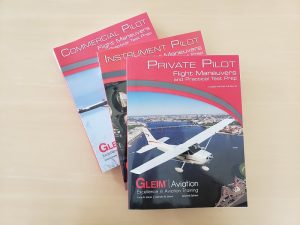
Gleim Flight Maneuvers and Practical Test Prep Books Flight Maneuvers and Practical Test Prep books: These books are aligned with the ACS and include detailed discussions, ACS references, full-color illustrations, common errors, and other subject-area tasks. Each line in the ACS is thoroughly explained so there should be no question about what you need to know and practice. This book will make your flight training easier to understand and is a must-have for study prior to your FAA practical test.
-
ACS and Oral Exam Guides: All aspiring pilots should have a copy of the Airman Certification Standards and an Oral Exam Guide to prepare for the assortment of scenario-based questions they may face during their practical test. Unlike most publishers, Gleim combines the Airman Certification Standards (ACS) and the Oral Exam Guide into one convenient, easy-to-use book.
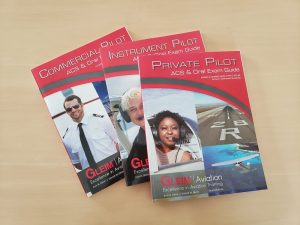
* Flight instructor books are aligned with the PTS because the relevant ACS has not yet been implemented. We’ll let you know when it is!
Lets look at an example to see how you can help your student prepare using Gleim Materials.
Your student receives ACS code PA.I.A.R1, which covers Pilot Qualifications, Failure to distinguish proficiency vs. currency, on their knowledge test.
Using the Private Pilot ACS & Oral Exam Guide, instructors can refer to the specific area of operation and task and use Gleim questions to help assess the student’s knowledge. You will then have a better idea of the student’s weak areas within the specific task element.
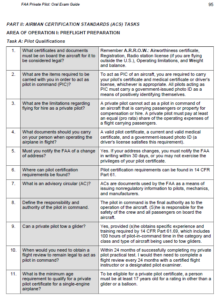
You can then use the Private Pilot Flight Maneuvers and Practical Test Prep book to train students and fill any knowledge gaps.
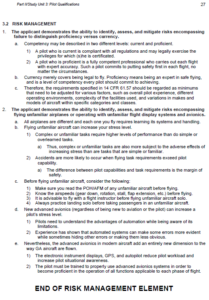
Gleim flight training materials are meticulously designed to make flight training more efficient. These resources help students and instructors keep their training courses coordinated and will save you time, money, and frustration. If you have any questions about using the materials, we are here to help. Aviation Training Consultants can be reached at 800-874-5346, ext. 471.
Written by Ryan Jeff, AGI, Aviation Research Assistant

